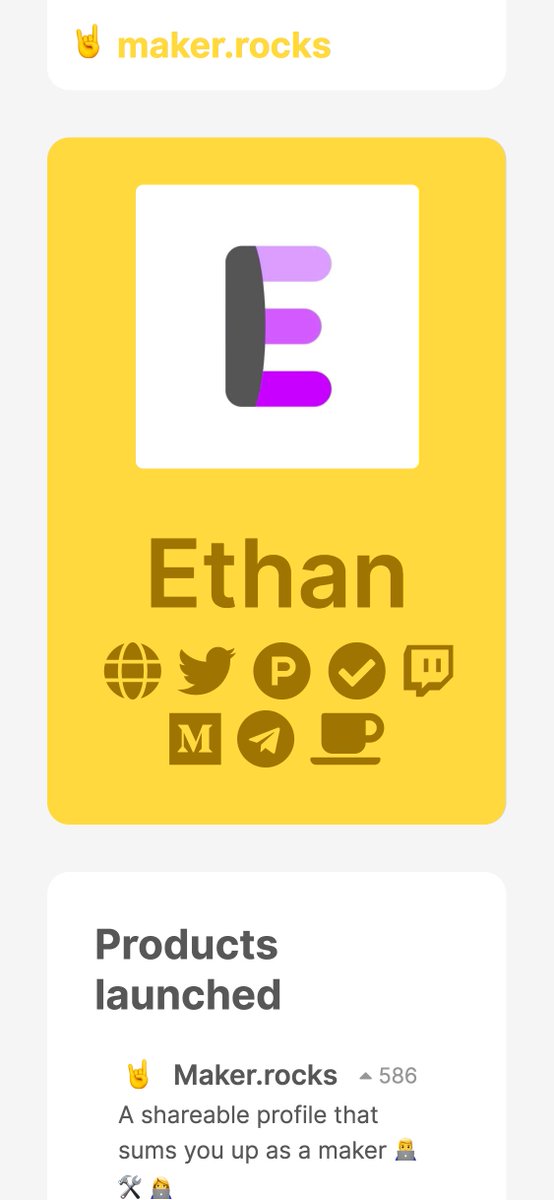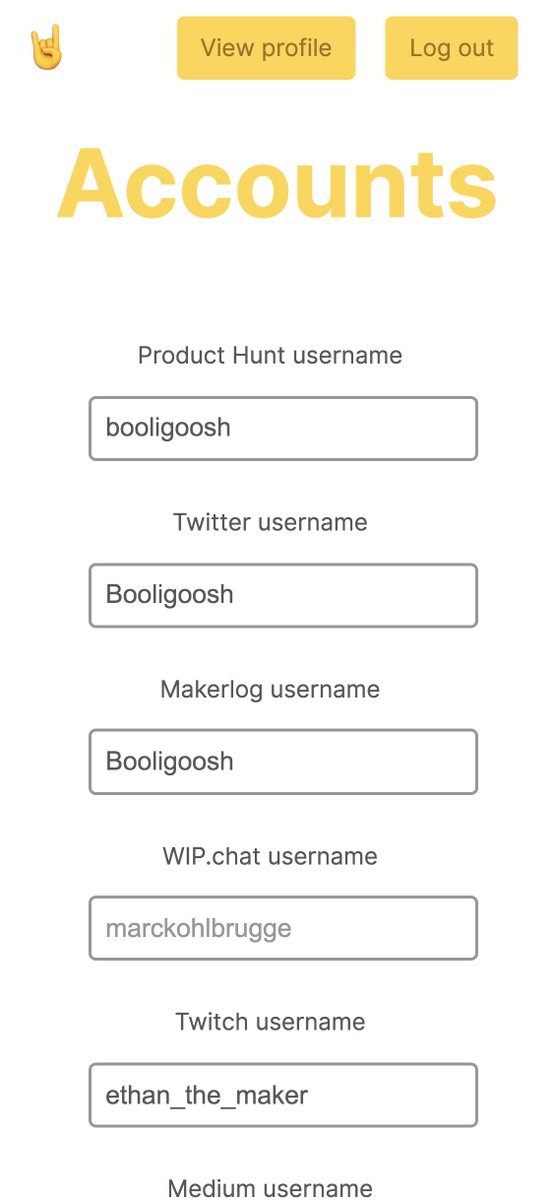
First update to https://t.co/lDdqjtKTZL since the challenge ended – Medium links!! Go add your Medium profile now 👀📝 (thanks @diannamallen for the suggestion 😁)



More from Makers
Results from yesterday’s poll. I’m inclined to agree. And this is something I’m going to fix in my next move.
As an indie maker you have a huge advantage if you can genuinely dogfood your product. Don’t do what I did and try to make a product for teams if you’re just one person. That’s really, really dumb 🙃
Before searching for product-market fit, ask yourself if you have founder-product fit. It is a humbling question but one worth investing the time to answer truthfully.
In hindsight, I have low founder-product fit with Talkshow. It’s for teams but I’m solo. It’s a big broad idea but as an indie I should be focused on a niche.
Just braindumping 🤪 Again thanks to @tylertringas for the micro-saas content on his blog, it helped me navigate / articulate some thoughts I was having.
Controversial question. Does it matter if you are a user of your own product?
— Jon Yongfook (@yongfook) September 3, 2019
As an indie maker you have a huge advantage if you can genuinely dogfood your product. Don’t do what I did and try to make a product for teams if you’re just one person. That’s really, really dumb 🙃
Before searching for product-market fit, ask yourself if you have founder-product fit. It is a humbling question but one worth investing the time to answer truthfully.
In hindsight, I have low founder-product fit with Talkshow. It’s for teams but I’m solo. It’s a big broad idea but as an indie I should be focused on a niche.
Just braindumping 🤪 Again thanks to @tylertringas for the micro-saas content on his blog, it helped me navigate / articulate some thoughts I was having.
What are some things you should *NOT* do as an indie hacker?
I was recently on @ProductHunt Radio (https://t.co/IuSMrZTaYG) where @Abadesi asked me this question about all sorts of challenges that founders face.
Here are a few of my thoughts…
@Abadesi Don't blindly follow advice without considering the context in which the advice was given (from who, to who, when, for what) and adapting it to fit your personal situation.
E.g. advice that works for a high-growth VC-funded startup might be disastrous to your indie business.
@Abadesi (This applies to any and all advice in life, btw, not just advice for how to start and run a company. It's almost never a good time to turn off your brain and blindly follow what others are saying.)
@Abadesi Don't equate being a founder with being an inventor. It's an analogy that can easily go too far.
You'll end up overvaluing and over-protecting your pet ideas. Or worse, you'll never come up with an idea at all, because you'll assume that it needs to be something completely new.
I was recently on @ProductHunt Radio (https://t.co/IuSMrZTaYG) where @Abadesi asked me this question about all sorts of challenges that founders face.
Here are a few of my thoughts…
@Abadesi Don't blindly follow advice without considering the context in which the advice was given (from who, to who, when, for what) and adapting it to fit your personal situation.
E.g. advice that works for a high-growth VC-funded startup might be disastrous to your indie business.
@Abadesi (This applies to any and all advice in life, btw, not just advice for how to start and run a company. It's almost never a good time to turn off your brain and blindly follow what others are saying.)
@Abadesi Don't equate being a founder with being an inventor. It's an analogy that can easily go too far.
You'll end up overvaluing and over-protecting your pet ideas. Or worse, you'll never come up with an idea at all, because you'll assume that it needs to be something completely new.














